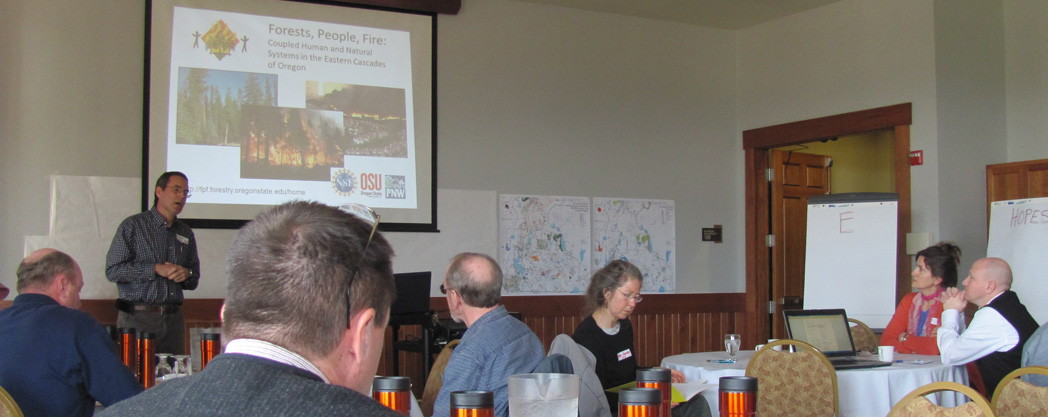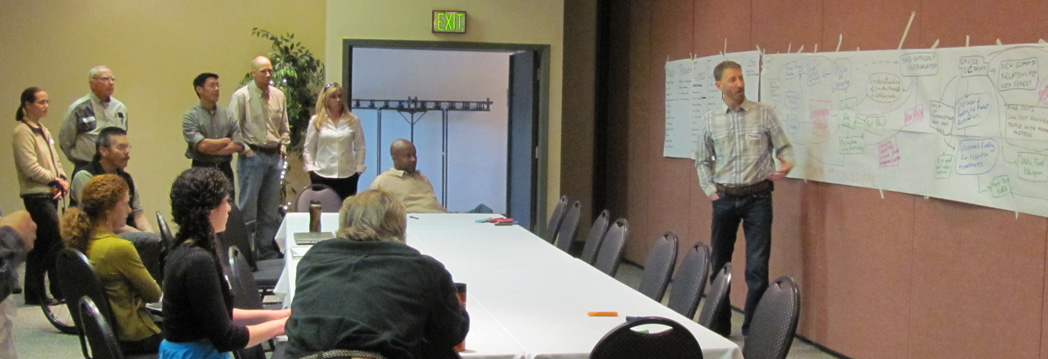We held two one-day scenario planning workshops with stakeholders in Klamath Falls and Bend on April 9 and 10. About 14 people representing a range of landownerships and interests attended each workshop.
Each workshop consisted of a schedule of exercises (see schedule) designed to lay the foundation for imagining different futures for these landscapes. The workshops are part of a multi-stage process of scenario development. In this first stage we attempted to:
- Foster dialog among diverse interests in the regions
- Incorporate the diverse local knowledge into uncovering primary social and ecological drivers of change.
- Develop scenarios that will be used in landscape simulation and visualization models
Scenario planning is a tool used by decision makers and invested parties to generate plausible futures in a particular context. In designing scenarios, participants synthesize both direct and indirect "factors, actors, and sectors" that influence the environment in question. By linking these drivers of change, (e.g. historical context, environmental factors, industry, population change, etc.), plausible but still uncertain visions of the future of the area/region are developed. These scenarios are then used to identify areas of concern and issues for decision makers to address when planning for events that may have high importance and high uncertainty.
Our workshops were abbreviated version of a process that typically takes several days. Participants developed lists of the "drivers of change" in their contexts, including social, technological, environmental, ecological, policy, and political factors that may affect forests and people of central and southern Oregon in the future. Our focus was fire suppression, insect outbreaks, forest management, development, climate change and related factors. Participants linked these drivers by drawing “concept maps” on large sheets of paper and identifying connections and influences among them. From these linkages, the groups laid out some plausible narratives of change that the region may face in the next 25-50 years.
Klamath Falls Scenario Workshop - 9 April 2012

Bend Scenario Workshop - 10 April 2012
